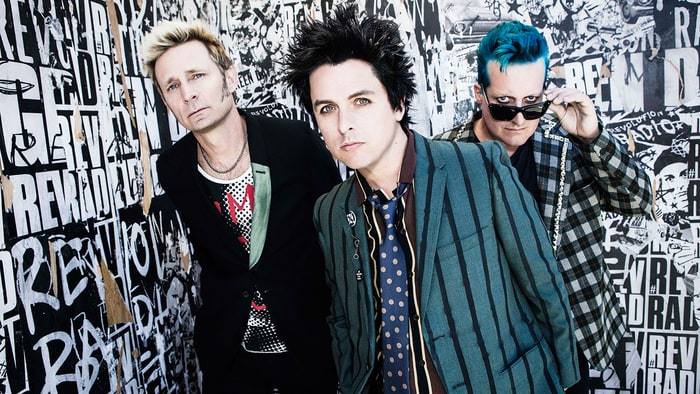facebook.com
Anyone who grew up in the early 2000s is probably familiar with the hugely popular and widely acclaimed album, “American Idiot” by pop-punk veterans, Green Day. This local trio from the Bay Area has been blending the aggressive, rebellious tendencies of punk-rock with sweet and tender pop music since their 1989 debut EP, “1,000 Hours.” Metacritic and rateyourmusic.com show that Green Day’s 2004 album, “American Idiot” has been generally recieved as the band’s magnum opus. “American Idiot” was essentially a culmination of all the songwriting skills that the Green Day had learned and improved upon over the past 15 years.
According to an article by Billboard, as of 2014, “American Idiot” sold 6.2 million copies worldwide. The album was so successful, it was even adapted into a Broadway musical.
Unfortunately, the problem with hitting such a high-water mark at the middle point of one’s career is that it’s nearly impossible to follow up. During their early career, Green Day showed a distinct talent for tastefully balancing the two disparate styles of melodic pop music and loud, angry punk-rock. This was a rare talent that most pop-punk artists don’t possess. After the success of “American Idiot” catapulted Green Day into the public spotlight, the band spent over a decade struggling to strike that balance again. During this time they released four severely lackluster albums that were bogged down by an obvious attempt to pander to the public, and an overzealous studio gloss that sterilized any rough edges, which may have still remained.
On Oct. 7, Green Day returned with their newest album, “Radio Revolution.” The title of this album is somewhat misleading. Though many of the songs here are catchy enough to be fit for the radio, there is certainly nothing revolutionary about them. However, in some ways, this is a good thing. “Radio Revolution” is a refreshing return to form for Green Day. It sounds like something that could have been pulled from their golden era in the early 2000s.
Instead of releasing another blatant exercise in the soulless commercialization of punk music, Green Day has opted to pay a bit more respect to the genre that spawned them. That’s not to say that “Radio Revolution” sounds like a Black Flag, or Misfits album, but Green Day was never about pure, unbridled aggression. “Radio Revolution” sees the band carefully navigating their way back towards the sweet spot between pop and punk that they established so convincingly with their earlier work.
The album opens with some of the bright, acoustic strumming Green Day are so well known for. Vocalist Billie Joe Armstrong’s rough but melodic voice outlines the theme of the album by singing, “I never wanted to compromise or bargain with my soul/ How did a life on the wild side ever get so dull?”
This is essentially Armstrong addressing the drop in quality and of their previous few releases due to making compromises with public interest. It isn’t by any means an original concept for an older band’s returning album, but it’s still nice and reassuring to hear. After making this confession, the song abruptly transitions into the signature, distorted electric guitars, and pummeling drums that characterize the more abrasive side of Green Day.
There are several standout songs on “Radio Revolution.” The single, “Bang Bang” starts out with a particularly memorable bass line that is quickly echoed by electric guitar strumming power chords. After the first chorus, the song changes pace into a unique, galloping segment that features what sounds like a middle-eastern melody. The title track starts with an extremely catchy guitar lead that carries the song into a traditional verse-chorus layout. The driving melody of this song is infectious.
Although “Radio Revolution” is far from groundbreaking, it still has some great tunes, and it’s overall an enjoyable listen. Fans of Green Day’s earlier material will find a lot to love here.



































